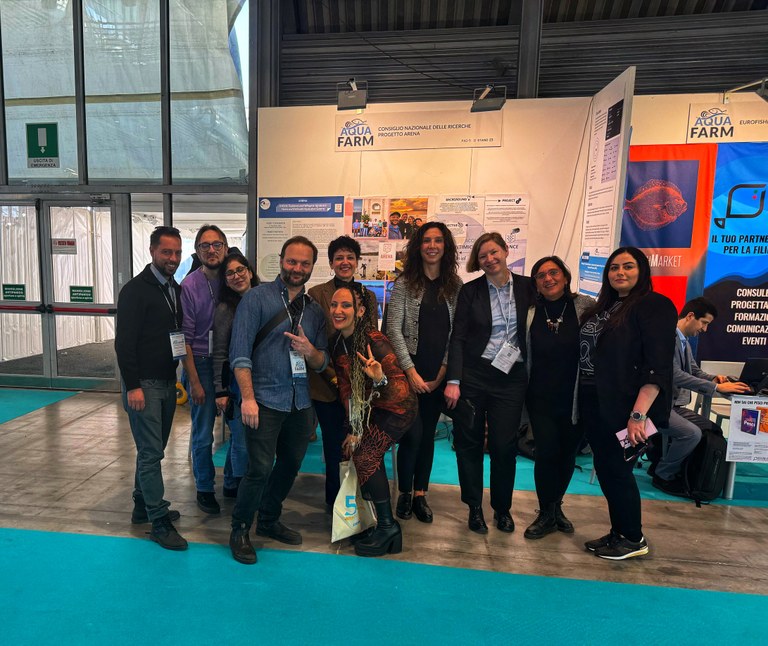Workshop on “Antibiotic resistance in Aquaculture: addressing challenges and promoting sustainable practices” at AQUAFARM 2024
On 15th February 2024, a workshop “Antibiotic resistance in Aquaculture: addressing challenges and promoting sustainable practices” organized by the AquaticPollutants-funded research project ARENA was held at the Aquafarm Fair in Pordenone, representing the largest Exhibition Event and Convention for sustainable aquaculture and fishing industry in Italy.
During the Workshop, experts and researchers from ARENA and other Aquatic Pollutants funded projects that joined the Workshop (SPARE-SEA, PHARMASEA and NanoTheCAba) explored challenges and fostered sustainable solutions to antibiotic resistance in aquaculture.
For the ARENA project, the CNR team showed some results about antibiotic residue detection trough an early-warning flow cytometric tool and the application of target amplification techniques, while the team from the Laboratory for Soft-Matter and Biophysics of KUL showed the functioning of the biosensor, which is characterized by a PDMS polymer surface with structures capable of detecting target bacteria in aquaculture within water samples.
Through the SPARE-SEA project, scientists demonstrated how human use of coastal ecosystems across various gradients affects antibiotic resistance enrichment in the oyster bioreactor and its subsequent transfer pathways inside human-sized coastal settings.
 In the Nanothecaba project, scientists presented findings from the evaluation of an integrated prototype water purification system made up of an ultra-stable silicon carbide membrane for contaminated water pre-concentration.
In the Nanothecaba project, scientists presented findings from the evaluation of an integrated prototype water purification system made up of an ultra-stable silicon carbide membrane for contaminated water pre-concentration.
Lastly, the results from the PHARMASEA project highlighted the occurrence, uptake and trophic transfer, as well the potential ecotoxicological effects, of pharmaceuticals in specific marine species and regional marine food webs.

